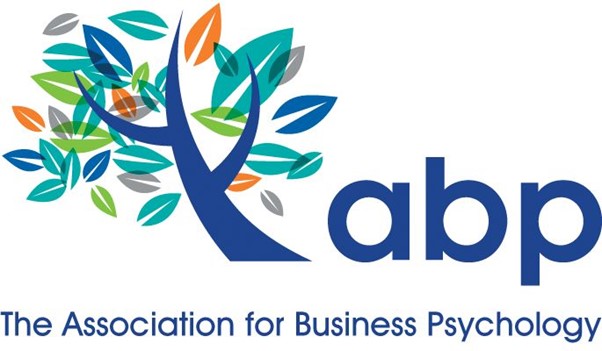After delivering a very well-received development programme for emerging leaders, we reflected on the question: What was the game-changer with this group of people? As we often find, the shift in people was felt when we were encouraging participants to look more deeply at the…

Authored by Dr Dawn Nicholson, ABP Vice Chair, Head of Accreditation, Biz Psych Cup Lead
It can’t have escaped anyone’s notice that there is an important election here in the UK this week. It also can’t escape you that, irrespective of who we have in Government come Friday, UK economy and business is going to need time, support and attention to start firing properly. Britain ranks 5th out of 7th when comparing GDP to its G7 rivals, and is [still] struggling to return the economy to pre-COVID levels. When it comes to inactive workers, the UK ranks 7th out of 7: there are 700,000 open positions more than there were during the pandemic and we have the highest levels of “inactivity” – people not in work or looking for work – which has risen since the pandemic.
Growth and productivity are key to addressing these challenges and business psychology has a role to play in supporting that. So we asked our Board for their thoughts and ideas on where Business Psychology could be applied to help our workplaces, and all those in them, thrive and be successful. Following are some of their thoughts, grouped around our 5 principle practice areas that we at the ABP consider critical to the field of Business Psychology.
The Psychology of Selection and Assessment
• Selection/Recruitment and Assessment: all organisations should aim to be open and inclusive to all applicants to ensure they source and develop the best talent.
o Applying business psychology, we can help workplaces build inclusive and fair selection processes, allowing all candidates to thrive and showcase their skills. Research suggests some minority candidates avoid taking tests that they perceive as a threat to their identity, which could reduce diversity in the talent pool.
o Business Psychology can help harness and integrate the power of AI in recruitment and ensure these new technologies do not discriminate against certain protected classes. The combination of AI and human oversight should minimise the discrimination risk.
Strategy and Organisational Effectiveness
• Innovation and entrepreneurship lie at the heart of organisational effectiveness, productivity and success, as well as the need to embrace organisational change.
o Business Psychology can help encourage and embed a culture of innovation and entrepreneurship, overcoming barriers to this, which typically exist in organisations, e.g. risk aversion, cognitive biases and a lack of autonomy
o We are living in a time of major change and uncertainty, as we undergo the integration of AI into the workplace. Applying Business Psychology, we can support organisations through the change process, helping them to overcome fear of the unknown, and embed psychological safety – critical to creating a positive atmosphere where employees are willing to take personal risks and innovate.
The Psychology of Learning & Development (L&D)
• In the increasingly fast-paced world of work, leaders need to prioritise investment in organisational learning and development to reduce skill gaps and heighten their competitive advantage. L&D is crucial for organisational success, from retaining employees, to offering enhanced knowledge and skills.
o Not all employees learn the same way. Through applying business psychology, organisations can understand the different learning styles of their employees and work with business psychologists to create tailored and effective learning plans, to maximise skills development and efficiency.
o Research evidence suggests there are generational differences towards learning and development, with millennials and Gen Z attributing more value to development opportunities compared to older generations in the workplace. Business Psychology can help employers understand how their different employee cohorts value L&D, which, in turn, can aid with attraction, retention, job satisfaction and employee engagement.
Behavioural Science
• Understanding consumer behaviour and human decision-making is vital to product development and good business strategy. Decision-making is a vastly underrated skill, which some leaders struggle with.
o Business psychologists can help workplaces by devising focused interventions and processes aimed at helping teams work through complex decision-making processes, with the aim of ensuring cognitive biases and other blocks to good decision outcomes are minimised.
o Consumer psychology can account for social persuasion and motivation from third parties to purchasing decisions, such as products. It could help ‘nudge’ employees, employers, and consumers, into better and more sustainable purchasing decisions, which can help with green initiatives and de-carbonisation. Research has identified intrinsic motivation as being key to real change in pro-environmental behaviour. This research focuses on values and self-identity as crucial factors to overcome barriers to change.
Human Motivation and Workplace Well-Being
• The Job Demands-Reources (JD-R) Model has helped us understand that even if you work in a demanding role (which so many of us seem to do these days!), you can experience less stress if your organization provides the proper resources to support you. When job demands are high and the positives associated with the job are low, stress and burnout is often the end result.
o According to the Mental Health Foundation, 74% of UK adults have felt so stressed at some point over the last year that they felt overwhelmed and unable to cope. We can apply business psychology to design effective interventions aimed at minimising workplace stress.
o The CIPD found that between 20-30% of 5000+ employees surveyed reported negatively on some major aspects of work – suggesting 6-9 million employees have poor quality work. How then can they be expected to be motivated? Business psychologists can work with employers to design organisations, jobs and processes to maximise motivation whilst minimising stress.
These are just a few ways we came up with to apply business psychology improve workplaces and the lives of all those in them. We are sure you can think of lots more! How would you advise the next Government?



